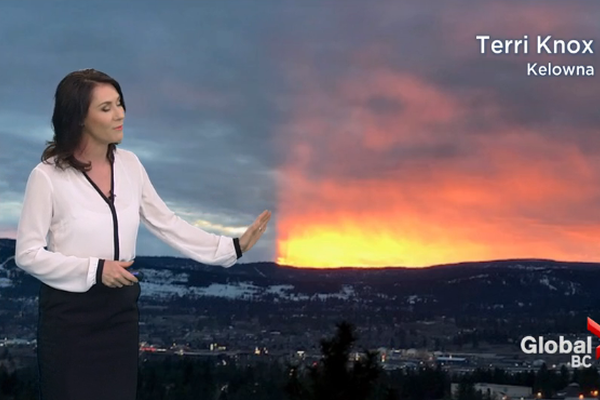In its annual trends research report,Thriller Archives YouTube says fan culture is turning Gen Z into creators.
The platform says that the increasing volume of fan-made content — recaps, reactions, parodies, and commentary that can be morepopular than its source content — has made fan culture "the central driver of emerging popular culture."
As The Washington Postreported last week, the YouTube study found that 65 percent of 350 U.S.-based Gen Z respondents describe themselves as "video content creators." The report contextualizes that majority as the result of a larger increase in fan-made content. Fans expect their media to be malleable and to be empowered to remix it," the report reads. Sixty-six percent of Gen Z Americans say they often spend more time watching content that discusses or unpacks something than they do watching the thing itself.
Online fandom is a powerful tool for virtual connection, with 47 percent of Gen Z respondents reporting that they belong to a fandom that no one they know personally is a part of. Of all respondents aged 14-44 who identified as fans, 80 percent said they consume content about the thing they’re a fan of at least weekly on YouTube. Notably, eight percent of those surveyed by YouTube who identified as fans also considered themselves professional fans or "someone who earns revenue from a fanship."
Fandom is not new, but it seems it's being taken more seriously than ever. In May, veteran YouTube creator Jenny Nicholson's four-hour video breakdown of the sins of Disney's Star Wars hotel earned coverage from unlikely sources, including The New York Times, NPR, and Rolling Stone. Nicholson has been making similar analyses for more than seven years, but the detailed assessment of the hotel's failures was her longest video yet and her third most-viewed. It has now been viewed more than eight million times, indicating the growing power of fan-made analysis.
The YouTube study was conducted by research firm SmithGeiger, with report insights from KR&I's Fandom Institute. Respondents were adults who are active online, ages 14–44. The study defined Gen Z respondents as those between 14 and 24.
(Editor: {typename type="name"/})
 Is it 'Thunderbolts*' or *The New Avengers'?
Is it 'Thunderbolts*' or *The New Avengers'?
 'Spider
'Spider
 David Harbour posts sweet 'Stranger Things' Instagram message for Winona Ryder
David Harbour posts sweet 'Stranger Things' Instagram message for Winona Ryder
 In an instant messaging world, a delayed response is anxiety inducing
In an instant messaging world, a delayed response is anxiety inducing
 Stablecoin bill advances in U.S. Senate as Trump critics call to end his crypto dealings
Stablecoin bill advances in U.S. Senate as Trump critics call to end his crypto dealings
Waymo data shows humans are terrible drivers compared to AI
 Now operating in cities like L.A., San Francisco, Phoenix, Austin, and Atlanta, the robotaxis of Way
...[Details]
Now operating in cities like L.A., San Francisco, Phoenix, Austin, and Atlanta, the robotaxis of Way
...[Details]
Nintendo reveals the Switch Lite for people who just play on the go
 Do you have a Nintendo Switch that you never, ever connect to your TV? You might want to give the Sw
...[Details]
Do you have a Nintendo Switch that you never, ever connect to your TV? You might want to give the Sw
...[Details]
'Stranger Things' Season 3: Why that devastating finale is a fake out
 This post contains spoilers for Season 3 of Stranger ThingsOur tears have not even dried yet after t
...[Details]
This post contains spoilers for Season 3 of Stranger ThingsOur tears have not even dried yet after t
...[Details]
Serena Williams engaged to Reddit co
 Tennis superstar Serena Williams is engaged to Reddit co-founder and author Alexis Ohanian.Yes, they
...[Details]
Tennis superstar Serena Williams is engaged to Reddit co-founder and author Alexis Ohanian.Yes, they
...[Details]
I'm a college professor. My advice to young people who feel hooked on tech
 When I was a child, computers were a fixture in my home, from the giant Atari on which I learned my
...[Details]
When I was a child, computers were a fixture in my home, from the giant Atari on which I learned my
...[Details]
Relive 1997 with 20 songs turning 20 in 2017
 You may not totally remember it, but 1997 was a pretty great year in music.From The Notorious B.I.G.
...[Details]
You may not totally remember it, but 1997 was a pretty great year in music.From The Notorious B.I.G.
...[Details]
Trump's brilliant cybersecurity solution is to send messages by courier
 President-elect Donald Trump has a brilliant solution to our country's cybersecurity problems. No, i
...[Details]
President-elect Donald Trump has a brilliant solution to our country's cybersecurity problems. No, i
...[Details]
Viking bones and DNA will decay quickly as Greenland thaws
 Viking settlers abandoned Greenland some 600 years ago. But the frozen ground has preserved centurie
...[Details]
Viking settlers abandoned Greenland some 600 years ago. But the frozen ground has preserved centurie
...[Details]
Stablecoin bill advances in U.S. Senate as Trump critics call to end his crypto dealings
 The crypto industry is celebrating this week as a controversial stablecoin bill dubbed the GENIUS Ac
...[Details]
The crypto industry is celebrating this week as a controversial stablecoin bill dubbed the GENIUS Ac
...[Details]
'Friends' to leave Netflix, head to HBO Max streaming service
 Friends will always be there for you – just not on Netflix. The beloved comedy series, origina
...[Details]
Friends will always be there for you – just not on Netflix. The beloved comedy series, origina
...[Details]
接受PR>=1、BR>=1,流量相当,内容相关类链接。